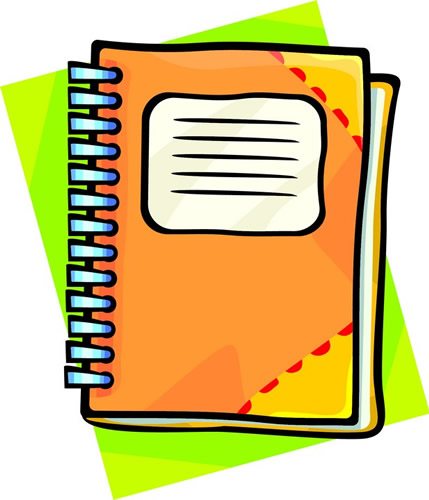- Painted Sky Elementary School
- Class Information
- Curriculum
-
Curriculum
First Grade Curriculum

Reading/Fundations/Waterford Reading Our Reading/Language Arts program is called "Into Reading", which is published by HMH and Wilson Fundations. Reading is taught and incorporates a balanced literacy approach and incorporates phonics, phonemic awareness, vocabulary, reading comprehension, spelling and writing/penmanship skills. The class will also utilize fiction and non-fiction books to aid in theme-based units that are based on common core/state standards, with an emphasis on Science and Social Studies. In addition, we also work in Reading CAFES on a daily basis. Our Reading CAFES reinforce concepts and skills taught and give your child a chance to practice their reading skills. Children will be instructed on their own individual reading level. In addition to our reading program, children will also participate in an online reading program called Waterford. Waterford lessons are individualized and are based on your child's individual reading level. Daily lessons are taught using the Wilson Fundations Program. These lessons reinforce phonics, phonemic awareness, spelling, and handwriting. The final component of our Reading Program is another online tutorial called Raz Kids. Each child will receive specific instructions on how to utilize Raz Kids at home for further reinforcement of skills. Our class is very fortunate to have a very rich and extensive Reading Language Arts Program.
SpellingOur Spelling Program is part of the Fundation Program. We do not have weekly spelling tests. I will be sending home our words that we are working on in spelling via email, twice a month beginning in September.
PenmanshipDirect instruction is given in penmanship using the Zaner Bloser method. Neatness and correct formation are stressed. First grade students will receive direct instruction in letter formation during the first quarter of the school year. Handwriting is assessed throughout the curriculum in all writing assignments. Handwriting is taught in conjunction with Wilson Fundations Program.
WritingSix Traits of Writing is a writing strategy/program used throughout Painted Sky and is included in the "Into Reading" program. Children are taught specific skills such as voice, organization, ideas, word choice, sentence fluency and conventions. Emphasis is on conventions and ideas. Children are encouraged and taught how to write letters, stories (fiction and non-fiction), make lists, jot down notes, write books and many other stimulating and engaging writing activities. In addition to this, we are implementing the Lucy Calkins writing program. Mini-lessons are taught throughout the school year and are used to strengthen writing skills. We will focus on all writing genres during the school year.
MathPainted Sky uses the Everyday Math Program. This program is used district-wide. The program includes many hands-on math activities as well as games that reinforce math concepts/skills. The children will use manipulatives to help reinforce all of the math concepts taught. Arizona College and Readiness standards are used in the program. Writing is also integrated into math at certain times. Children also complete a variety of activities in Math CAFES. Participation in Math CAFES reinforces the skills and concepts taught in the Everyday Math Program. Children are instructed on their own individual math level.
Science/Social StudiesThese subjects are taught utilizing various themes. They involve direct instruction and follow-up centers. Hands-on activities are emphasized. Experimentation is done in science, as well as following the scientific process/engineering process.
Science Study Units: STEM is taught throughout our Science Program/Themes.
***Children will have the opportunity to visit the Maker Space at least twice-monthly to complete a variety of STEM related concepts/activities
August: Weather: Precipatation/Wind/Clouds/Scientific Process
September: Life Cycles of Bats/Living and Non-Living/Scientific Process
October: Pumpkins/Plants/Scientific Process
November: Water Cycle/Natural Resources/Scientific Process
December: Rocks/Scientific Process
January: Engineering Process/Engineering is Elementary
February: Habitats: The Desert
March: States of Matter: Playdough Study
April: Ice Cream Factory/Shape/Color/Texture/Weight
May: Famous Scientists/Guest Speakers/88 1/2 Science Experiments
Social Studies Units:
August: Friendships/All About Me/Rainbow Club/Community Workers
September: Arizona Symbols/Taking Care of Each Other/Kindness
October: National Symbols/Patriotic Songs/Rights and Responsibilities/Halloween
November: Family Timelines of Important Events/Native Americans/Pilgrims/Thanksgiving
December: Economics: Wants and Needs/Buyers and Sellers/US Currency and Banks/How The Grinch Stole Christmas
January: New Year's Day/Martin Luther King Jr./Rosa Parks/Cesar Chavez/Rights/The Olympics
February: Valentine's Day/Ancient Egypt
March: Geography/Landforms/St. Patrick's Day
April: Goods and Services
May: Globetrotting: Travel Around The World/First Grade Fun Days!
In addition to the above Social Studies Topics, we utilize the Pearson Social Studies Program titled My World. The following are the main components of My World:
My School, My Community
Work In The Community
Looking At Our World
Traditions We Share
Our Past, Our Present

